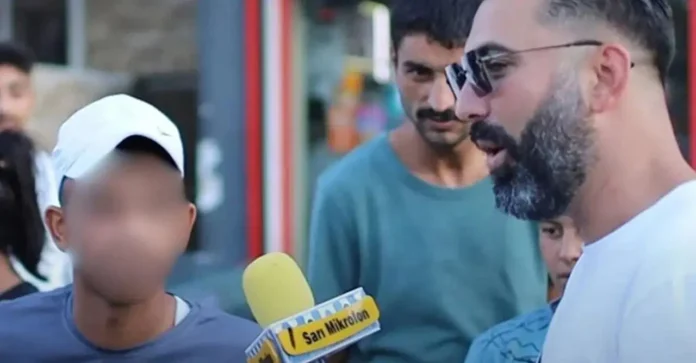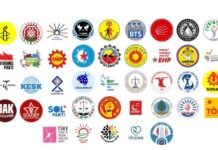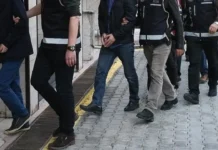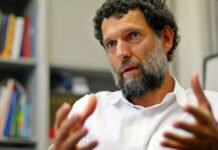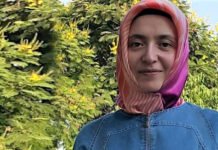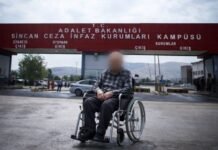Turkish authorities arrested street interviewer Özkan Bozkurt on Wednesday after he posted a video showing a person firing shots into the air during a street interview, the Cumhuriyet daily reported.
The shooting incident took place in western Tekirdağ province, and the video was posted on YouTube on August 26. In the video a person fires a rifle into the air during the street interview, and another young man looks at the camera and says, “I will take everyone’s life,” which quickly attracted attention on social media.
The perpetrator, a minor identified only by the initials G.B., was detained the same day along with a rifle found in a search of his family home.
On August 29 Bozkurt was taken into custody from his home in Istanbul by order of the Çorlu Chief Public Prosecutor’s Office. He was accused of “inciting hate and enmity among the public.”
After a court appearance Bozkurt was released under judicial supervision, requiring him to report to a police station twice a week and abide by a travel ban.
However, following a new detention order issued by the prosecutor’s office, Bozkurt was again taken into custody in Istanbul late Wednesday night.
He was subsequently arrested by a court and sent to Metris Prison.
Bozkurt’s arrest has sparked outrage among many followers, who said independent journalists were put behind bars while real criminals were set free into the streets.
Street interviews, frequently broadcast on YouTube channels in Turkey, have come under growing scrutiny from authorities, with participants occasionally detained over their comments.
Turkish President Recep Tayyip Erdoğan denounced the interviews in a public speech in early May. He said some journalists “misused cameras and microphones” to provoke or insult others under the guise of journalism and “spread terror in the streets.”
Moreover, since September 2024, YouTubers producing news content or conducting street interviews in Turkey have been required to obtain a license from the country’s broadcasting watchdog, the Radio and Television Supreme Council (RTÜK). While RTÜK says the measure aims to prevent slander and misinformation online, many see it as an attempt to control independent media and restrict public discourse. Street interviews, which allow citizens to express candid opinions on topics ranging from economic hardship to political dissatisfaction, have become a particular target due to their unfiltered nature.
Critics argue this is part of a broader pattern of media control in Turkey following a failed military coup in 2016, when hundreds of outlets were closed and dozens of journalists jailed under the pretext of an anti-coup crackdown. Journalists today risk job loss, judicial harassment or imprisonment even for minor criticism of the government, reflecting the severe constraints on press freedom in the country.

